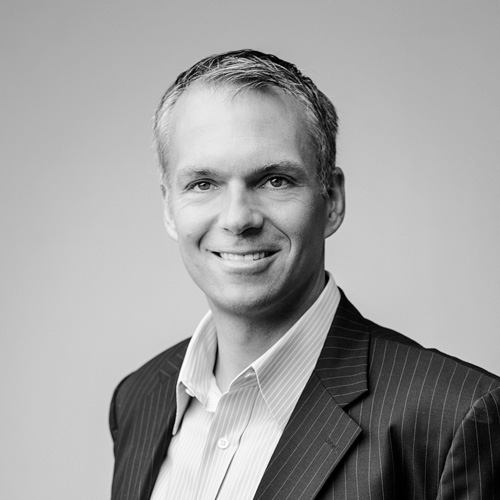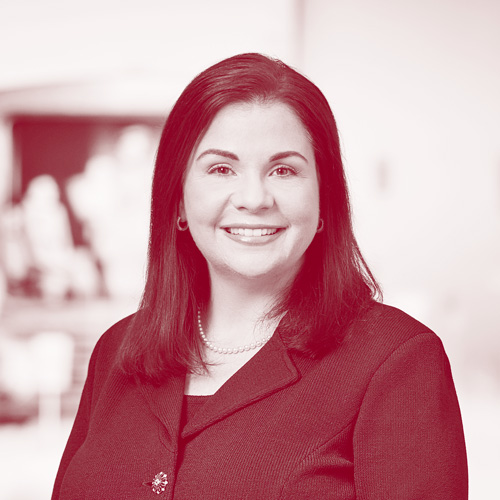As senior vice president and general counsel for Neiman Marcus, Tracy Preston knows that mentorship is the key ingredient to effective leadership. Mentoring cultivates talent, creates a growth culture, and increases everyone’s outcomes. Profile spoke with Preston about how her family, high school teachers, and college experiences cultivated her life-long calling to contribute in the legal profession—from her first grade teacher to her mentor in AP English, from competitive athletic opportunities to watching reruns of Perry Mason. Preston discusses how these diverse experiences influenced her interest in the law and legal affairs and helped her get to where she currently contributes her skills to the Neiman Marcus Group (NMG) luxury brands.
When did you decide that you wanted to pursue a career in law?
From my earliest memories, I have always been interested in the legal profession. During my summer visits with my paternal grandparents, this interest grew. They loved Perry Mason and were also passionate about voting rights. As you can imagine, for them, at that time and living in the South, voting and civil rights were a very important issue that they took great care to share with me. This nurtured my interest in diversity and pro bono work around civil rights. Before college, I had also enjoyed competitive sports; the challenge, competition, and learning curve also helped inspire my interest in a career that provides that level of intensity. As I grew older and understood more about the law, I was fascinated by the powerful impact that the law could make in so many areas. I went on to attend Georgetown University to study government/international relations. I enjoyed living in the diversity of the District and the opportunities that this afforded people from all different backgrounds. It was here that I interned at the US Attorney’s Office for the District of Columbia and decided I wanted to pursue my law degree and a lifelong career. My maternal grandfather’s career was also influential. He was one of the first African American stenotype reporters employed in the New York City courts.
Can you describe the early stages of your career?
After Georgetown, I immediately applied to go to law school. I went to the University of Virginia School of Law in Charlottesville. Afterward, I moved to California, and my entire legal career, prior to coming to Neiman Marcus, was in the San Francisco Bay area. I worked in the ERISA group at Baker McKenzie. I did pro bono work in various areas of law, such as landlord-tenant and employment, and also provided legal services to the homeless through one of the bar association’s programs. I expanded into employment, commercial, product liability, and intellectual property at my next firm. Looking for more of an expansive practice, the next firm provided me with the opportunity to further develop my skills, broaden my contribution, and set longer-term career goals of moving in-house and possibly a chief or general counsel role.
At Latham & Watkins, I met my first legal mentor. Her name was Barbara Caulfield. She just stepped down from the Northern California District Court bench and, having moved back to private practice, was looking for “lieutenants,” as I would call it, to be a part of her legal team and to assist her with her caseload. It was an incredible opportunity, very challenging, and exposed me to new areas of law. Working with her and other partners at the firm was like being a junior partner while being an associate lawyer. I followed Barbara to another firm, Orrick, and that’s where I became partner in the litigation group in San Francisco. While at Orrick, I was very involved in the various mentoring programs, including running the diversity program and the summer associate program for several years. After about five years, I had an opportunity to go in-house and took my initial position of association general counsel at Levi Strauss & Co.
“Diverse teams expand perception, understanding, problem solving, and customer relationships. This will help you expand not only your employee base, but your customer base, too.”
What led you to go in-house?
I am always looking for things to broaden and expand my skill set, and one thing I wanted—after having a national practice—was to be on the inside and to get to know one company fully. I actually heard about the position from friends at the Gap. I was there for eleven years and held various positions—chief counsel for HR, litigation and global supply chain, and chief compliance officer—and got to work on amazing projects, both domestic and international, and to travel across the globe.
Eleven years is a long time. What was it about Levi Strauss & Co. that you loved so much?
Levi Strauss & Co. is a wonderful, family-owned company, and I even had the opportunity to work with some of the family members on various projects. I had great colleagues, great working atmosphere, and a collaborative environment. They were supportive of my career and development while there. Then I had the opportunity to come here [NMG], and I’ve been here since February 2013.
What goals or initiatives did you have for Neiman Marcus when you first started?
NMG required me to hit the ground running. I dove into major projects while learning my team, my colleagues, the company, running a dual track process [an initial public offering and sale], divestiture of our Chinese business, and managing through a cyberincident. I may have had slower onboarding plans, but these events and projects threw me and my team into the fire. The benefit of such intensity at the outset is that it requires all to bring their best game and use all their skills. Additionally, it shines a light on the areas that need attention. There isn’t time to really learn a lot of nuances, which can cut through the honeymoon period and quickly develop necessary relationships to get the job done. As a litigator, I liked working in that paradigm. It pushed me.
What are some of the specific challenges that you deal with in working for a luxury department store?
Solving problems like how you maintain a luxury experience while online and how you navigate the emerging challenges of cybersecurity. It’s interesting because we are wondering how to find innovative ways to sell. How does our customer want to shop and how do we continue to provide a unique buying experience? I think retail is going through an exciting transformation because of the online retail marketplace and social media platforms. Beyond the purchase, how can we help customers expand their experience with some of the social media platforms, opportunities to connect with others, share their purchase, and enjoy the memories they create with the items they have purchased from any of our NMG brands, like Neiman Marcus, Bergdorf Goodman, mytheresa.com, and Last Call? And, as retailers, how do we deal with that and adapt and transform to how our customer shops today?
What are some of your biggest accomplishments?
In addition to the things I mentioned earlier that I faced when I first joined the company, I think I’d add to that the company’s acquisition of mytheresa.com. A rewarding accomplishment while working at Levi Strauss & Co. was when my team and I developed an expanded anticorruption audit process. Also, I was heavily involved with the mentoring and diversity programs at the firms where I worked.
Why is diversity so imperative?
It’s important because diversity brings a broad scope of perspectives, and those diverse perspectives are vital to delivering extraordinary outcomes. Diversity also provides a unique competitive edge to a company. Diverse teams expand perception, understanding, problem solving, and customer relationships. This will help you expand not only your employee base, but your customer base, too.
What qualities make a strong leader?
I would start with values: this is your compass. Then vision: I think of this as your map, charting the course. [Next is] curiosity because that helps you navigate the unexpected. In the state of curiosity, you aren’t in a reactionary mode, which increases one’s ability to successfully respond to variables and find new solutions. Curiosity also creates a cultural mind-set of inquiry, good listening, and connection, which builds trust and improves all sorts of outcomes, both people- and product-centric. Then there’s transparency. This breeds a culture of responsibility and feedback. Transparency encourages contribution, collaboration, appreciation, and visibility for the efforts made. Finally, there’s failure. There is a strong cultural narrative to be afraid of failure, but I think failure provides the feedback you need to recalibrate and achieve excellence. In many ways, one’s mastery of a subject or discipline comes from the feedback of failure.
Why do you emphasize mentorship?
It is vital to mastering one’s gifts, deepening skill, and broadening one’s vision or goals. Having a mentor helps you create a growth culture that allows people to realize their goals and grow those to a broader vision. Mentoring helps you strengthen your team’s skill, develop new areas, and improve outcomes. Mentoring creates a growth culture, which often brings forth new levels of talent. It grows both parties in meaningful ways, and it is a joy to celebrate accomplishments.
Why is good leadership necessary for a general counsel?
The general counsel is a resource to help achieve the goals of the company. Essentially, the general counsel is helping the different departments and teams have a clear ability to achieve the objectives with which they are tasked. He or she needs a broad legal understanding from every vantage point. In the end, the general counsel is in charge of looking out for the company’s interest and proactively providing the legal coordinates to deliver on the company’s mission, minimizing risk and liability. I think leadership is essential in this role, as it requires you to interface with all divisions of the company—both internally and externally—which requires leadership skills to build a solid working relationship through trust and great work.
What advice do you have for younger lawyers?
Relationships, relationships, relationships. Build good networks, and get a mentor that has achieved the position or skill you are interested in achieving. Be able to have a sense of humor and have humility. Create a good work/life balance, and appreciate that it is often a bit of a “focused imbalance.” That is, sometimes the case or workload will require a focus and time intensity that has a cycle driven by the case or immediate issues. Balance these periods with good self-care by doing things that you find rejuvenating. Celebrate your wins with family and friends, too.

